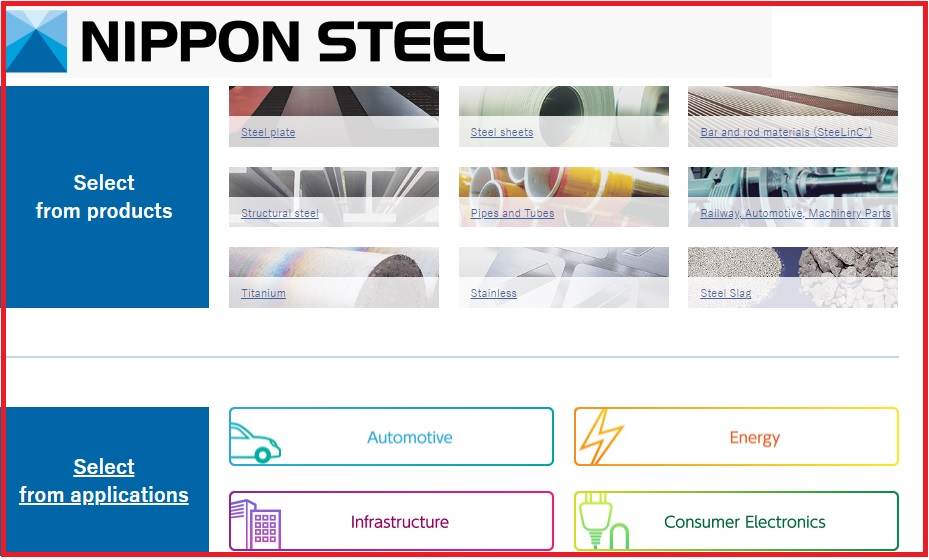
(Photo : Nippon Steel)
Nippon Steel
- Nippon Steel's $15 billion acquisition of U.S. Steel is under scrutiny due to U.S. national security concerns.
- The potential blockage has caused unease among Japanese firms, leading to a reassessment of their overseas ventures.
- The Committee on Foreign Investment in the U.S. (CFIUS) fears the deal could impact the steel supply for critical U.S. projects.
- The outcome could influence future cross-border M&A activities, potentially leading to increased caution and higher break-up fees.
The global steel industry is in a state of flux following the recent scrutiny of Nippon Steel's proposed $15 billion acquisition of U.S. Steel. The U.S. administration, citing national security concerns, is reportedly on the brink of blocking the deal. This development has sparked a wave of apprehension among Japanese firms, prompting them to reassess their overseas ventures more meticulously.
A leading contender for Japan's next prime minister has described the potential blockage of Nippon Steel's acquisition by the U.S. as very unsettling. The move could potentially undermine the trust between the two long-standing allies. The White House is reportedly close to announcing that President Joe Biden will block the deal on national security grounds, a move that has been met with widespread resistance.
The Committee on Foreign Investment in the U.S. (CFIUS) has expressed concerns that the proposed deal could pose national security risks by impacting the steel supply required for critical U.S. projects. This stance marks a significant shift in the committee's approach, which has been increasingly vigilant since Chinese companies embarked on a U.S. acquisition spree about a decade ago.
Political Trends and State Intervention
The potential blockage of the Nippon Steel deal has been further complicated by the U.S. presidential election, with lawmakers from both the Republican and Democratic parties voicing opposition. However, some believe that this opposition could subside post the November vote. Euan Rellie, New York-based co-founder and managing partner of investment advisory firm BDA Partners, opined, Whoever wins the election will be under pressure from the financial markets to accept these deals.
The situation has left Japanese companies feeling really, really concerned and shaken up, according to a Tokyo-based senior mergers and acquisitions (M&A) banker, who wished to remain anonymous due to the sensitivity of the matter. If the Nippon Steel deal falls through, it could lead to an increase in break-up fees, making buyers more cautious.
Despite the current predicament, outbound M&A from Japan to the U.S. has seen a significant surge this year, up nearly 160% to $32.1 billion. This accounts for 71.4% of Japan's total outbound M&A deal value, a substantial increase from 38.7% the previous year, according to Dealogic data.
Japan's Outbound M&A Activities
Weiheng Chen, a senior partner at law firm Wilson Sonsini, believes that the CFIUS decision in this case should not alter the policy trend of friend-shoring or Japan's status as a key ally country in the CFIUS review process. Japan witnessed a 45% increase in outbound acquisition deal value last year to $65.8 billion, as companies sought alternate revenue streams to mitigate the impact of a deflationary domestic economy.
The proposed takeover of U.S. Steel by Nippon Steel would have been the third-largest acquisition of a U.S. firm by a Japanese company in a decade, following the $21-billion takeover of Speedway in 2020, and $16 billion of Beam in 2014. Rellie argued that blocking cross-border M&A would be bad economics and bad policy, especially as a tidal wave of Asian clients paying up for U.S. and European assets had been predicted.
In a 100-page response letter to CFIUS, Nippon Steel pledged to invest billions of dollars to maintain and enhance U.S. Steel facilities that would otherwise have been idled. This move, according to the company, would indisputably allow it to maintain and potentially increase domestic steelmaking capacity in the United States.









